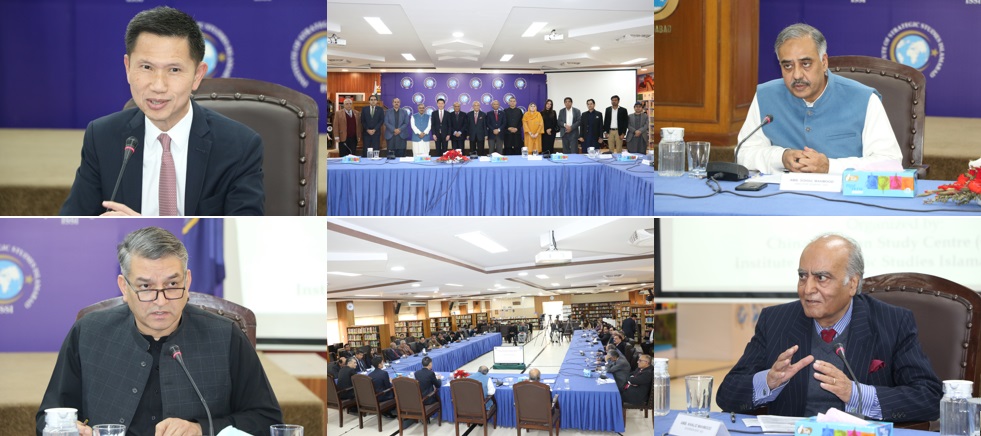ISLAMABAD ( WNAM REPORT): The China Pakistan Study Centre (CPSC) at the Institute of Strategic Studies Islamabad (ISSI) hosted Dr. Thitinan Pongsudhirak, Director Institute of Security and International Studies, Chulalongkorn University, Thailand, as part of its distinguished Lecture Series. Dr. Pongsudhirak deliberated on the topic of “Southeast Asia/ASEAN between the U.S. and China: Dynamics and Prospects.” The event was attended by former federal ministers, senior diplomats, practitioners, academicians and members of civil society.
In his welcome remarks, DG ISSI Ambassador Sohail Mahmood highlighted Dr. Thitinan’s intellectual and academic contributions to strategic thought in Thailand and ASEAN region and his role in influencing the research and policy discourse. On Pakistan-Thailand relations, he noted that these have evolved over decades and embraced myriad sectors such as trade, investment, education, science and technology, culture, and tourism. Both countries are also bound together by civilizational linkage tracing back to the ancient Buddhist Gandhara heritage of Pakistan. In the past, Pakistan and Thailand worked together in SEATO. Today, Pakistan counts Thailand among steadfast supporters of Pakistan’s elevated partnership with ASEAN. Ambassador Sohail Mahmood said it is important to understand perspective on contemporary Southeast Asia and ASEAN from Thailand. He noted that while in previous decades ASEAN’s growth trajectory had benefited from stable major-power relations, the region was now facing strong headwinds owing to sharpening contestation between the U.S. and China. It remained to be seen how ASEAN would navigate this complex and treacherous geopolitical landscape. He said that there was no better qualified scholar than Dr. Thitinan to speak on the subject with real knowledge and insight.
Dr. Thitinan Pongsudhirak, during his lecture, emphasized that the world is in transition. This has been even more pronounced since the inauguration of the second term of President Donald Trump in the United States. He noted that Donald Trump’s policy features two prominent themes: nativism and economic nationalism. This means that the United States shall not be interventionist any more, however, the country shall be increasingly protectionist and adopt policies that put greater onus on U.S. allies. Regarding China, Dr. Pongsudhirak noted that the country is on a trajectory of “manifest resurgence” due to its historical role in the world and its ongoing geostrategic projects like the Belt and Road Initiative. The so-called “new Cold War” is merely a continuity of the Cold War with the difference being economic altercation, he noted. The pressing question is how long a geoeconomic conflict can last until it transforms into confrontation and hostility. Regarding ASEAN, he noted that the accentuating major-power competition had led to the organization losing its centrality. The group has been divided on a number of issues including democratization in Myanmar, conflict in Ukraine, and situation in Gaza. These developments shall lead to resurgence of Southeast Asia as a region that is not denoted merely by cooperation among ASEAN members. For Southeast Asia and ASEAN the US-China relationship has been most consequential in the recent years.
Earlier during his welcome remarks, Dr. Talat Shabbir, Director CPSC, highlighted that ASEAN and the Southeast Asian region is navigating a complex yet promising era in the international order. ASEAN nations seek to maintain strategic autonomy while fostering constructive engagement with all major powers including the United States and China. In this backdrop, understanding implications of relations between these two countries for the rest of the world is crucial.
Ambassador Khalid Mahmood, Chairman BOG ISSI, during his closing remarks noted that the older world order is coming to an end while a new order is not yet born. The present world is in a period of transition facing great disruption. He noted that there is an increasing need to enhance the role of middle powers and reform the UN-led system of international laws and practices for a more stable international order.
The event concluded with a question-and-answer session.
14


